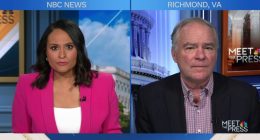
The audacious plan by Europe’s top soccer clubs to form their own U.S.-style tournament lies in tatters just days after it was launched. But that might not stop some eventual Americanization of the world’s most popular sport.
The six English clubs that had supported the new European Super League pulled out Wednesday, all but sealing its fate. The proposal for a “closed” league inspired by U.S. franchises, featuring weekly face-offs between powerful teams that couldn’t be relegated, would have torpedoed the existing Champions League run by European soccer’s governing body UEFA. It sparked immediate outrage from national leagues, clubs, fans and governments.
What the near-universal criticism glossed over is the inadequacy of the status quo—and not just for the most popular clubs’ billionaire owners. The collapse of the Super League might not take much pressure off UEFA to fix problems it has failed to address for decades.
Although soccer has a bigger fan base than any other sport globally, the National Football League, Major League Baseball and the National Basketball Association all recorded more revenues than any European soccer competition in 2019. This is in part because the MLB and NBA have more matches per season. But the NFL still collected $60 million a game, compared with about $25 million for the Champions League.
More than half of that income comes from media companies like Sky—owned by U.S. giant Comcast —paying for soccer broadcast rights. The Super League expected a more popular format to double the value of these rights, helping soccer clubs plug the financial holes caused by the pandemic.
Investors in the few publicly listed clubs, such as Manchester United in the U.K. and Juventus in Italy, should be under no illusion that money alone can improve a flawed business model: Extra funds have a history of ending up in the pockets of stars rather than shareholders. Also, if broadcasters bid more for a Super League, they might pay less for domestic competitions—which is why the English Premier League in particular was up in arms.
Still, the Champions League is likely leaving a lot of money on the table by offering a subpar product. Its group and knockout format means that many of the most popular matchups don’t happen in a given tournament, or even for years. Changes recently announced by UEFA don’t fix any of the key issues, which only underlines the need for deeper reform.
Whatever comes of the Super League gamble, a tournament in which top European teams regularly face one another is likely to happen in the end, because it is in the interest of clubs, broadcasters and, yes, viewers. Media-industry analyst Ian Whittaker suggests that a more commercial arrangement could help bring U.S. streaming giants like Amazon.com and Disney into the mix—probably even if the contentious “closed” format were dropped.
Critics of soccer’s commercialization make little sense with their appeals to the grass-roots game, which has already been marginalized by high ticket and pay-TV prices, schedules that hurt game attendance in favor of overseas viewership and, above all, massive financial inequalities. A franchise like the Super League, with U.S.-style revenue sharing and spending caps, would at least address imbalances at the very top.
European soccer has long been a product, just a badly run one. It seems inevitable that an American sense of spectacle will eventually shake it up.
Write to Jon Sindreu at [email protected]
Copyright ©2020 Dow Jones & Company, Inc. All Rights Reserved. 87990cbe856818d5eddac44c7b1cdeb8








